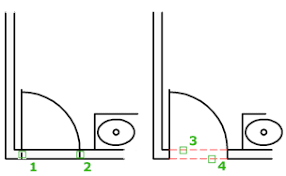The Ins and Outs of Facebook Creeping

As one of the world’s largest social media platforms, Facebook has become a staple in our daily lives. Whether we use it to catch up with friends, share photos, or get our news fix, it’s hard to imagine a world without it. However, Facebook also has a darker side – creeping. We’ve all been guilty of taking a deep dive into someone’s profile or stalking an ex. This article will dive into the ins and outs of Facebook creeping, what it is, and why we do it.
First, let’s define what Facebook creeping is. According to Urban Dictionary, creeping is “the act of looking through someone’s Facebook profile, especially their pictures, to an obsessive extent.” So, it’s essentially stalking someone on social media. Whether it’s an old acquaintance, a crush, or an ex, Facebook creeping is a way for us to learn more about someone without actually having to talk to them.
There are several reasons why we creep on Facebook. For some, it’s about wanting to know everything about someone without actually having to ask them. It’s a way to satisfy our curiosity and find out things that we otherwise wouldn’t be able to. For others, it’s a way to stay connected to people that we’ve lost touch with. We can see what they’re up to, where they’re living, and who they’re with – all without actually having to reach out to them.
However, there’s a fine line between harmless Facebook creeping and turning into a stalker. While it may seem innocent to scroll through someone’s profile, it can quickly turn into an obsession. If you find yourself constantly checking their profile, looking at their photos, or trying to gather information about them, it may be time to take a step back. Facebook creeping can quickly become an addiction that takes up all of your time and energy.
Another thing to consider is that Facebook creeping can have consequences. If you accidentally like a photo or comment on something from years ago, it can come off as creepy or desperate. It’s also important to remember that what you see on someone’s profile may not reflect their true reality. People tend to only show their highlight reel on social media, so it’s important not to make assumptions based solely on what you see online.
In conclusion, Facebook creeping is a common habit that many of us are guilty of. While it may seem harmless, it’s important to recognize when it becomes an obsession and take a step back. Remember, people’s online personas may not reflect who they truly are, and there can be consequences to creeping. So, the next time you find yourself deep-diving into someone’s profile, ask yourself why you’re doing it and consider taking a break from social media altogether.






